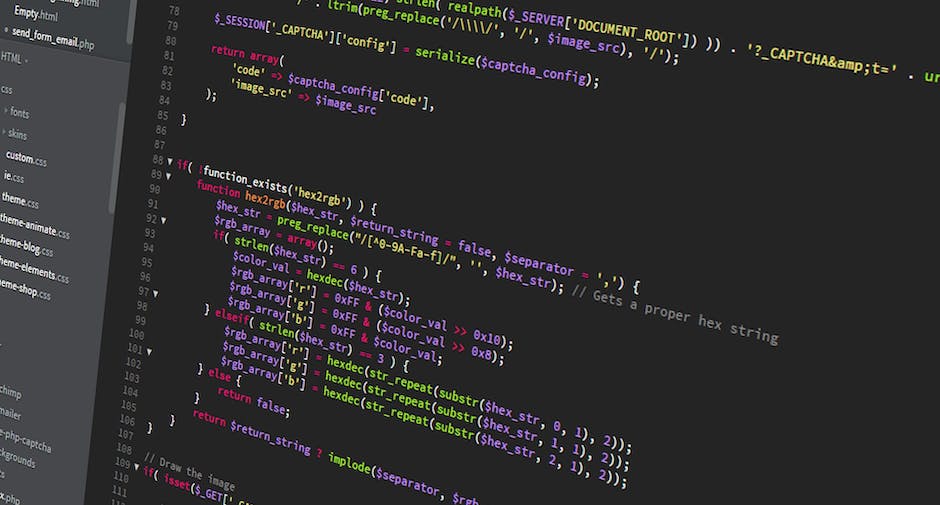In recent years, the tech industry has seen a significant surge in demand for data-related roles. With the rise of big data, the roles of data scientists and data engineers have taken center stage. These professionals play critical roles in the data processing and analytics sector, and while their job titles may seem similar, their responsibilities are quite different. Both roles are pivotal in the field of data analysis, but they contribute in their own unique ways.
The influx of data in today’s digital world has necessitated the need for experts who can make sense of it all. Data scientists and data engineers are two such experts. Yet, they are often confused due to the overlap in their roles. However, their functions within an organization are distinct and equally vital. This blog post aims to detail the differences between these two key roles in the ever-evolving tech industry.

Understanding the Role of a Data Scientist
Often referred to as the rockstars of the tech world, data scientists are tasked with designing and constructing algorithms and predictive models. These models help businesses extract valuable insights from complex data. Using their skills in programming, statistics, and machine learning, data scientists dive into vast oceans of data to fish out relevant information. Their work enables businesses to make data-driven decisions, shaping strategy and influencing business outcomes.
Understanding the Role of a Data Engineer
While data scientists are involved in extracting and interpreting data, data engineers are the ones who make this possible. Data engineers primarily focus on the collection, storage, and processing of data. They lay the groundwork for data scientists to analyze. Their role involves building robust, scalable, and efficient data pipelines and infrastructure. They ensure that data flows smoothly from its source to the data scientists who need it for analysis.
In essence, while data scientists are the architects of data analysis, data engineers are the builders who make these analyses possible.
Key Skills and Tools for Data Scientists
When it comes to the skills required for a data scientist, they are quite diverse. These professionals need to be well-versed in programming languages such as Python and R, which are commonly used for data analysis. They also need to have a solid understanding of statistical analysis, as this is a major part of their job. They often utilize machine learning techniques to build predictive models and extract valuable insights from data.
Not just that, being able to visualize data effectively is another key skill for data scientists. After all, the insights derived from data are only as good as one’s ability to interpret and present them in a meaningful way.
Popular Tools for Data Scientists
There are several tools that are popular among data scientists. One of these is Jupyter, which is a web-based interactive development environment for creating notebook documents. It supports several languages like Python (most popular), R, and Julia.
Another widely used tool is TensorFlow, an open-source machine learning framework that helps in developing and training ML models.
Tableau is another tool that is incredibly beneficial for data scientists. This data visualization tool helps in simplifying raw data into an easily understandable format without any technical skills and coding.
Key Skills and Tools for Data Engineers
Data engineers, on the other hand, require a different set of skills. They are expected to have a strong grasp of database systems, such as SQL and NoSQL, as their job involves dealing with large amounts of data and managing databases.
They should also be proficient in data pipeline tools like Hadoop and Spark, which allow for the distributed processing of large data sets across clusters of computers. Moreover, having strong programming skills is a must for data engineers as they often need to write complex queries and scripts.
Popular Tools for Data Engineers
There are several tools that data engineers commonly use. One of these is Apache Kafka, a community-distributed streaming platform that handles real-time data feeds. It’s a tool that allows for the building of real-time streaming data pipelines that reliably get data between systems.
ETL (Extract, Transform, Load) tools are also commonly used by data engineers. These tools allow data to be collected from various sources, transformed to fit business needs, and loaded into a database or data warehouse.

Educational Background and Experience
When we talk about the educational background and work experience required for data scientists and data engineers, we find a considerable overlap. However, the specific areas of expertise vary. Both roles demand a solid foundation in computer science, mathematics, and statistics. Yet, the devil is in the details. So, what’s the difference?
Data scientists typically hold an advanced degree in statistics, mathematics, or computer science. They often have a background in data analysis and are comfortable working with large data sets and statistical software. They need to be proficient in programming languages like Python or R, which are used for data analysis. Prior work experience in data analysis or related field is usually preferred.
On the other hand, data engineers often have a bachelor’s degree in computer science, engineering or a related field. They need to be adept in database systems like SQL and NoSQL, and data processing tools like Hadoop and Spark. They have strong programming skills and are comfortable working with large and complex databases. Prior experience in database management and data warehousing is beneficial.
The Interconnected Nature of the Roles
Ever wondered how data scientists and data engineers work in tandem? Well, it’s quite an interesting synergy. The work of a data engineer complements that of a data scientist, and vice versa. Let’s explain how.
Data engineers are the ones who lay the groundwork. They are responsible for designing, building, and managing the data infrastructure. They create the systems to extract, transform, load (ETL) data, and maintain data architecture. Their work enables the data scientists to do their job effectively.
Data scientists, in turn, use this infrastructure to conduct their analyses. They design and build algorithms and predictive models to extract insights from the data. The data infrastructure set up by the data engineers helps streamline the data scientists’ work, allowing them to focus on analysis and interpretation.
In essence, data engineers and data scientists work interdependently. The efficient collection, storage, and processing of data by the data engineer enable the data scientist to focus on extracting valuable insights and creating predictive models. This collaboration is crucial for a data-driven organization to succeed.

Salary and Job Outlook
The field of data science and engineering has witnessed significant growth over the past few years, creating numerous job opportunities and competitive salaries. Let’s take a look at the salary ranges and job outlook for both roles.
According to the U.S. Bureau of Labor Statistics, the demand for both data scientists and data engineers is expected to grow by more than 20% over the next decade. The salary, however, varies based on factors such as location, experience, and industry.
| Role | Average Salary (US) | Job Growth Prediction (Next Decade) |
|---|---|---|
| Data Scientist | $113,000 | 31% |
| Data Engineer | $127,000 | 25% |
Choosing the Right Path: Data Scientist or Data Engineer?
Having discussed the roles, responsibilities, skills, tools, and salary prospects of both data scientists and data engineers, it’s time to reflect on which career path aligns with your personal interests and professional goals.
Both roles offer exciting opportunities in the ever-evolving tech landscape. However, the choice between becoming a data scientist or a data engineer depends on your passion for either diving deep into data to extract insights and patterns (data scientist) or building and optimizing systems to handle data (data engineer).
As a final note, it’s crucial to understand that both roles are complementary and essential in a data-driven organization. The decision should not be about which role is better, but rather about where your interests and skills lie.
- Do you enjoy analyzing and interpreting complex datasets to extract insights?
- Are you more interested in building and optimizing data systems and infrastructure?
- Do you have a strong background in programming and algorithms?
- Do you have a knack for statistical analysis and machine learning?
- Are you comfortable working with big data tools and technologies?
Remember, the right career path for you is one that aligns with your passions, skills, and long-term career goals. Both data scientists and data engineers play a crucial role in harnessing the power of data, and choosing between these two paths means choosing the aspect of data you are most excited to work with.
